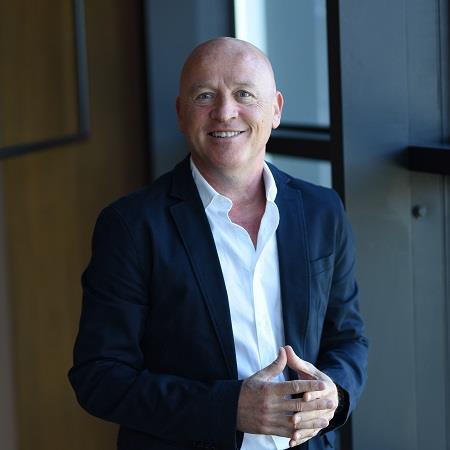Functional textiles is one of the most important and exciting fields
Innovative pioneer in textile production, Ekoten is a prestigious knit fabric producer in Europe and one of the major textile exporters of Turkey. The company supplies advanced fabrics to the apparel, medical, military and activewear markets around the world. In a chat with Fibre2Fashion, CEO Ishak Aydin Ozturk talks about knit fabrics, sustainability and R&D.
Recently, the official name has been changed from Turkey to Türkiye. How has this impacted the Turkish textile industry?
Well, nothing has changed really, we have always been Turkey. In the past, this has been discussed several times, but I think the change in name will impact positively for creating brand ‘Türkiye’.
Which are the main countries/regions for your export?
We have two main markets—the US and Europe. For our American customers, we ship our fabrics to Jordan, Sri Lanka, Vietnam and some other countries in the Far East. For our European customers, we ship our fabrics to Spain, Portugal, Egypt, Tunisia and Morocco.
How does Ekoten contribute to sustainable development in Türkiye and internationally?
At Ekoten, we set our company goals and values in a way that is economically, socially and environmentally sustainable as possible. To achieve this vital goal, all our corporate strategies and policies are defined within the framework of sustainability. We plan all our actions and progress based on our sustainability plan which is structured based on our corporate values. We support 17 SDGs and we have identified four SDGs that we believe can have the greatest impact and contribution. These are Gender Equality; Decent Work and Economic Growth; Industry, Innovation and Infrastructure; and Responsible Consumption and Production.
In a nutshell, we define our main strategies aligned with the sustainable development goals and triple bottom line of the sustainability. In terms of environmental sustainability, we have been calculating greenhouse gas emissions according to international standards since 2012 and voluntarily reporting to the Carbon Disclosure Project and disclosing the same to the public. In line with the targets of the Paris Agreement, we are implementing activities to reduce greenhouse gas emissions of our own production facilities and suppliers. In all production processes, we apply holistic sustainability approaches based on circular economy models. We put great importance to using sustainable raw materials for our fabrics and we implement effective water management, energy management, waste management and digitalisation practices with environmentally friendly approaches and operational excellence studies in all our production processes. We cooperate with universities and business partners to develop innovative solutions, and we support a large number of start-ups to benefit from their dynamic and innovative approaches. As Ekoten, we support the development of innovative infrastructure and digitalisation in the industry, and we are among the leading companies in many fields.
In terms of social aspects, we provide a peaceful, happy and safe working environment for our employees where they can continuously improve themselves. We contribute to the goal of decent work and economic growth by providing many benefits to our employees and their families. We offer a significant number of qualified employment opportunities for our region, and we especially support young people with our talent development programmes. We do our best to increase our contribution to the development of society by cooperating with many NGOs that contribute to the betterment of the environment and people.
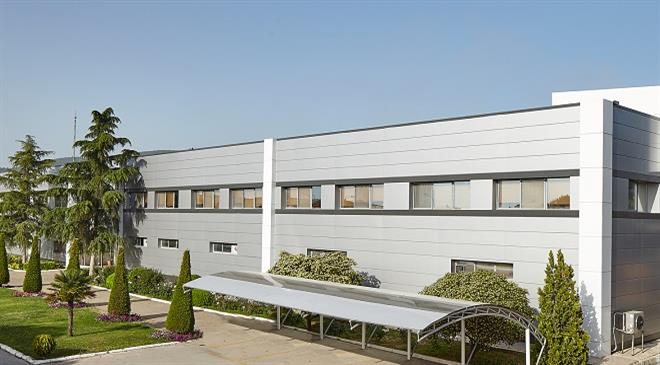
How is the ongoing Russia-Ukraine conflict affecting the Turkish textile industry?
Both countries are not among the major buyers from Türkiye, so there is no big impact. But major retailers have closed their operations in these countries, which means less demand from these brands. Also, some suppliers who are exporting directly to Russia are affected. As of now, the impact is not big, but if the war lasts longer, the effect will increase.
In terms of product diversity, Türkiye offers huge variety from home textiles to fast fashion, and from sportswear to intimate wear.
Post-COVID, have you seen a substantial rise in exports from Türkiye due to China Plus One, near-shoring and other factors?
There was definitely more demand after COVID-19, but given the present capacity and infrastructure, Türkiye can meet only small part of Far East business in very short term. This capacity may grow in the coming years. China’s clothing export is over $170 billion, while Türkiye’s clothing export is about $20 billion.
Which latest technologies and production methods have you invested in recently? How has it helped you to reduce production times?
We have been investing for years on digital technologies and lean manufacturing methods. I can proudly tell you that Ekoten is the most advanced textile company in the world in terms of digital technologies. We have more than 50 engineers dedicated only for big data analysis, process monitoring and optimisation, Artificial Intelligence, Track and Traceability. Last year, we changed our ERP system to SAP. It was a great project that took about 18 months. We implemented smart watches for operators to communicate with knitting machines. We implemented AI technology with cameras for real time quality control on the knitting machines. We take care to use the latest system technologies in all machines. This is our strongest muscle. There are many examples, but real investment for us is investing in people. To create an open minded, ambitious and creative culture. While having a lot of fun when working, we design our dreams and work to do the best.
What unique solutions does Ekoten offer its customers that are both sustainable for the environment and community?
As Ekoten we constantly reduce our GHG emissions. Since 2012, we declare our GHG emissions with a voluntary CDP (Carbon Disclosure Project) reporting. We have been rated "B-Management" score in the 2021 Climate Change Program of the CDP. By getting a "B" score, we were two levels above the textile Industry, whose average score was at the "C" level.
Secondly, we have the lowest water consumption in the industry. We are about to launch a new project that will be fist of its kind in the world, and I hope it will change whole industry. We will have zero discharge, we will be recycling, and re-using all the water back in the processes, which means we will be saving 2000 tons of water. There will be literally “No Discharge of Water”. It will take 6-8 months and it will cost around $2 million. We are proud to be a leader in this area.
At Ekoten, we do not used paper cardboards for rolling the fabrics from knitting to finishing. We only use composite reusable rolls, thus saving more than 100,000 kg of paper. We are now expanding that approach to our customers and sending the fabrics with reusable rolls, which they send us back after using the fabrics.
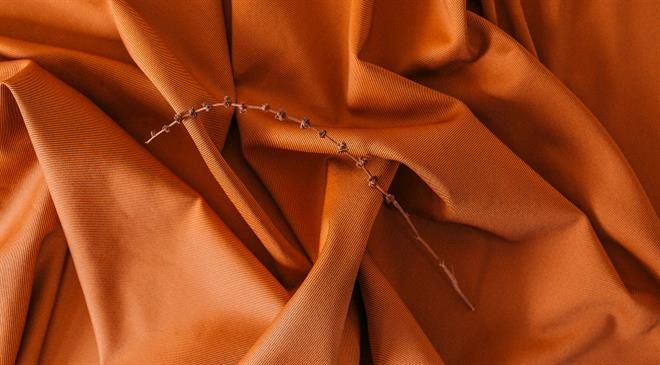
How big is the market for knit fabrics? What share does Europe have?
The global knitted fabric market size was valued at $56 billion in 2019. Its market size is expected to reach $70 billion by 2025. Increasing application of knitted fabric as technical textile in the automotive, sportswear, medical, and construction industries is expected to accelerate the growth of the market in the near future. About 80 per cent of Turkish garment exports are knitted fabrics goods. Another $2 billion of knitted fabrics are exported directly to Europe, Middle East and North Africa, as well as India and the Far East.
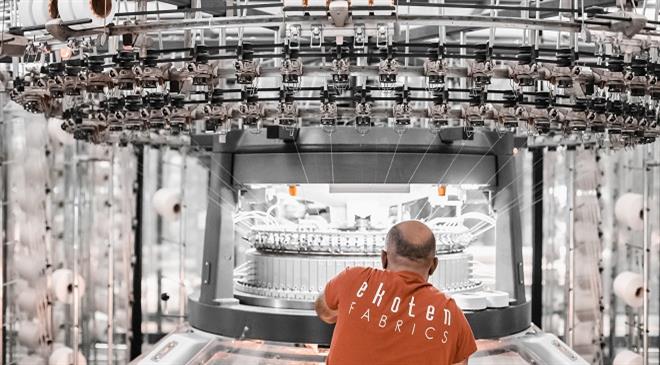
Some knitwear products are directly made from yarn. What are the end uses of knit fabrics?
There are big variety of areas where knit goods are used. Post-pandemic, fashion trends are changing, and people are looking for more comfortable things to wear while looking still smart and elegant. These include all clothing from underwear to formal suits, and from jogging pants to swimming suits. So, this is the best period to start using knitted fabric in many of these products where woven fabrics are currently widely used.
Do you have your own R&D centre? What is its focus area?
We have our own R&D centre, and this group works separately from Product Development team. R&D team works on mid- to long-term projects, with focus on recycling of materials, recycling of water, and functional fabrics with various applications, especially with membrane technology. One of the aims is to stop single use medical gowns, which became a disaster after the pandemic as millions of gowns are being sent to landfill every day. We are making fabrics for gowns, which can be used by health care professionals with extreme comfort for about 100 washing cycles.
What are the main textile-apparel export products of Türkiye?
Main textile-apparel export products of Türkiye are fast fashion products, high quality products for high-end brands, active wear, formal wear, etc. Türkiye use nearly eight per cent of the world’s cotton produce, so there is a huge textile infrastructure in place—not only from the point of machinery and building, but also from the perspective of blue-collar workers, engineers and university professors. There are several schools and universities in Türkiye offering textile education. Hence, the real value of the Turkish Textile industry is its people.
What are functional fabrics? Are all functional fabrics also knit fabrics?
Functional textiles is one of the most important and exciting fields. Textiles that have a set of integrated features such as wicking, anti odour, DWR, tough and dynamic characteristics, thermal, abrasion resistance, etc as required according to their application are known as functional textiles. Functionality, versatility, compatibility, flexibility, and interactivity are all characteristics of smart textiles, which belong to the category of functional textiles.
North America, Latin America, Europe, Asia-Pacific, and the Middle East and Africa are the five primary regions that make up the worldwide functional textile market. In terms of output, Europe has the largest proportion of the functional textile market. This is attributed to the massive rise of the textile and garment industry in Germany, France, Italy, and the United Kingdom, as well as high-tech innovations. In addition, in comparison to Europe, North America has a solid market for functional textile manufacturing. The functional textile markets in Asia-Pacific and the Middle East and Africa have a lot of potential. Malaysia, Taiwan, South Korea, Japan, and Türkiye are expected to be the most promising markets for the growth of the functional textiles. As Ekoten Technic, we are one of the most important players, and there is no doubt that functional textiles have opened a new world of possibilities in a variety of fields. The most adaptable and fastest-growing section of the performance gear market is sportswear.
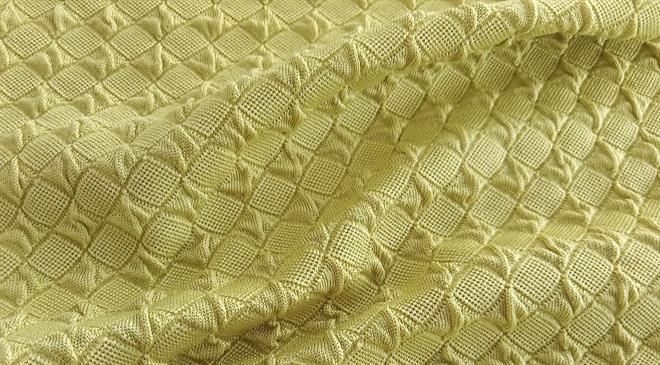
Where do you source your materials? Are all materials available in Türkiye?
We not only have a strong supply chain, but also have a wide range of material source with our dedicated teams, most of it available in Türkiye. But some parts come from China and Taiwan based on characteristic attributes of the components. It also depends on the availability, price, quality and of course transport time.
